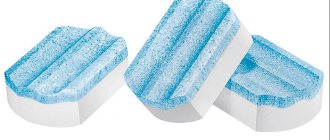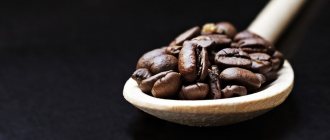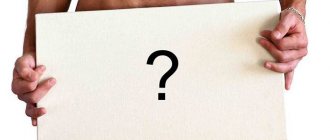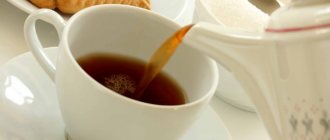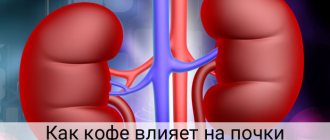Scientists have proven that in many cases a cup of freshly brewed coffee can help relieve headaches. This is especially noticeable with low blood pressure and migraines, although recent studies have revealed a positive effect on pain of a different nature. After all, most painkillers (in particular, the well-known citramone) contain caffeine. So, is it worth drinking coffee if you have a headache, who can benefit from it, and how to prepare such “medicinal” coffee.
Compound
The coffee bean consists of 2 shells: the outer one, which contains the psychostimulant caffeine, and the inner one, containing theobromine (a key component for the treatment of headaches). There are about 2000 chemical compounds in coffee. Moreover, 75% of the wet weight is indigestible polysaccharides.
Percentage of digestible substances:
- caffeine - 1.5%;
- fats - 13.9%;
- carbohydrates - 4.1%;
- tannins - 5.5%;
- vitamins and minerals (iron, potassium, phosphorus, calcium, vitamin P) - 5%;
- citric acid - 1%;
- esters of caffeic and quinic acids - 6.5%;
- oxalic acid - 0.4%.
Interesting! During roasting, the composition of the coffee bean undergoes changes. Thus, trigonelline, which gives the characteristic aroma, is partially converted into nicotinic acid, which is beneficial for the body. And chlorogenic acid forms other organic compounds that give the drink viscosity.
The calorie content of black coffee without sugar is 7–9 kcal per 100 g, depending on the strength and method of preparation.
More about migraines
A headache is perceived as a mild ailment. This phenomenon should not be confused with migraine.
This phenomenon can go away on its own as soon as the person gets a good night's sleep or drinks a drink that will warm him up. Very often, people experience migraines when the pain becomes more severe.
Coffee alone will not be able to cope with such a disease. A full night's sleep or good rest will not help either. Migraine is accompanied by a serious pain syndrome that causes true torment for a person. This phenomenon has nothing to do with blood pressure or glaucoma.
There is no need to call all types of headaches migraine. In fact, this is a separate disease that has special manifestations and signs.
Attacks can be prolonged, ranging from 2 hours to 72 hours. This is a pain that gains momentum and then suddenly subsides.
By the way, an attack can appear very unexpectedly indeed. Such a symptom may be associated with alternation or symmetry in its manifestations. Each case of illness will have its own individual character.
The disease is accompanied by weakness of the muscular system, loss of appetite, attention, and ability to work.
In this state, a person wants to go to bed, he becomes nervous and irritated at the slightest reason.
And it should be noted that not a single standard medicine will help get rid of an attack.
Women are most often affected by migraines. But this disease manifests itself in every sixth inhabitant of planet Earth. It became known about it in Ancient Egypt, long before Hippocrates himself.
If we talk about physiology, the disease is manifested by a sharp dilation of the blood vessels that are present in the brain. Doctors select an individual course of treatment for all patients with a similar pathology.
Analgesic effect
Headaches are a common ailment. But coffee helps only in cases where the substances it contains can affect the cause itself.
A tonic drink will most likely help if your headache:
- Caused by a disorder of the central nervous system. Doctors confirm the beneficial effects of moderate doses of coffee on the functioning of the central nervous system.
- Arose as a side effect after a spinal puncture.
- Appeared with a decrease in blood pressure - a common situation among hypotensive patients.
- In old age it torments closer to night. In such cases, it is recommended to drink some coffee just before bed.
Does it help with migraines?
Due to severe overwork, lack of sleep, poor nutrition, and changes in weather conditions (such as changes in pressure and temperature), sometimes cerebral vasospasm occurs. The result is severe throbbing pain in the head - migraine (hemicrania).
Pain is felt in the back of the head, temples and forehead. Accompanying symptoms: excessive sweating, lacrimation, nausea and even loss of consciousness.
Important! Migraine is a serious disease that leads to loss of performance, which, in turn, serves as the basis for establishing disability.
Natural strong coffee reduces the intensity of a migraine attack, and the pain gradually goes away, since the caffeine contained in the drink has a beneficial effect on blood vessels.
To achieve a therapeutic effect, it is necessary to strictly adhere to the dosage: no more than 300 mg (2 medium cups) per day and no more than 2-4 times a week.
Attention! Coffee enhances the effect of some painkillers: paracetamol, ibuprofen, indomethacin, acetaminophen, ergotamine and aspirin. Therefore, you should drink it before taking medications.
A reduction in migraine symptoms occurs an hour and a half after drinking a coffee drink and lasts for 3–5 hours.
After drinking alcohol
Headaches the next morning after a stormy feast are explained by the formation of acetate in the body. Coffee blocks this chemical reaction and relieves hangovers.
The effect of drinking coffee on migraines
A migraine attack is a sharp and unbearable pain in one part of the head, sometimes it happens on both sides at the same time. The disease is not caused by any injuries or pressure surges; it appears due to vascular spasms. This is a neurological disease that requires periodic medical supervision.
Unfortunately, it is impossible to relieve the pain of a migraine when it is not at the very beginning; all that remains is to wait for it to end on its own. At the first onset of symptoms, it is quite possible to prevent severe headaches by doing the following:
- Immediately lie down in a dark room, preferably with fresh air entering the room;
- Move away from any sharp sounds and noise, be in complete silence;
- Relax completely, self-massage your temples, try to fall asleep.
These methods will prevent pain or significantly reduce its duration, but it does not always come at the moment when it is possible to perform these actions.
Coffee is consumed quite often for migraines; some doctors even recommend drinking a small amount of this drink when attacks occur. Indeed, thanks to its high caffeine content, it can prevent the development of a migraine or ease the course of an attack so that you can continue working calmly. Migraines and coffee are quite compatible, but it will not bring any effect if a person regularly drinks large amounts of the drink.
Experts' opinions
In 2020, scientists confirmed that, subject to daily dosage, regular coffee consumption reduces mortality, reduces the risk of developing heart and neurological diseases (dementia, parkinsonism, etc.), pellagra, liver cirrhosis, diabetes and cancer.
It is not without reason that many oral and injection medications contain caffeine.
Fact. In June 2020, the International Agency for Research on Cancer officially removed coffee from the list of carcinogens that trigger the development of this terrible disease.
Scientists from Chicago conducted a demonstration experiment.
- At first, participants were offered no other pain relievers except a cup of coffee. It turned out that in more than 60% of cases this was sufficient.
- At the next stage, the volunteers were offered pills, which alleviated the condition of 58% of the subjects.
- A combination of an invigorating drink and pain-relieving drugs was effective in 70% of cases. And relief came within 20–30 minutes.
The proven beneficial properties of coffee do not change the fact that excessive consumption causes physical dependence and symptoms of mild withdrawal are observed upon abrupt withdrawal.
Note! Experts from Harvard University and Russian geneticists clarify that the prevention of dangerous diseases with the help of coffee is only suitable for healthy people.
Risk group
Most often, the female half of patients suffer from migraines. This is due to the fact that young females have low blood pressure.
Also at risk are people who know from their own experience what it means to be weather dependent. They very often encounter migraines, which are sometimes simply impossible to tolerate.
Anyone who has encountered such a problem knows very well how scary it is to experience another migraine attack again. This fear pushes people to drink coffee in large doses.
This is the human factor, because people believe that if you increase the dosage, the effect will not take long to appear. Only this time this rule will not bring the desired result.
The approach to increasing the dosage is incorrect. Coffee is not a panacea; the pain will not go away forever.
Relief will come fairly quickly, the attacks will become milder, but there is no point in expecting anything more. The headache will be excruciating and constant.
In such situations, you should not self-medicate; the best option would be to come for an examination to a doctor at the hospital at your place of residence.
Contraindications
A strong caffeinated drink by itself does not cause serious illness. But it can aggravate existing health problems, especially if you don’t know the norm.
- Allergy is an individual intolerance to substances contained in coffee beans. In the case of natural coffee, the hypersensitivity reaction is usually caused by chlorogenic acid or caffeine. Most often, allergies develop due to excessive drinking.
- Diseases of the stomach, intestines and pancreas. Coffee increases the production of gastric juices and irritates the digestive organs. Increased acidity after drinking the drink leads to heartburn and provokes the development of gastritis and ulcers.
- Hypertension. People suffering from high blood pressure should strictly adhere to the permissible limit, since excess can undermine their health.
- Disorders of the thyroid gland. The condition may worsen and hypothyroidism may develop.
- Neuroses and other mental disorders.
- Serious diseases of the cardiovascular system: caffeine causes rapid myocardial contraction, which is dangerous for patients with weak hearts.
- Taking certain medications, including sleeping pills. Coffee reduces the effectiveness of medications, so check with your doctor whether you can drink an invigorating drink during the course of treatment.
- Pregnancy. Possible consequences: increased heart rate in the fetus and decreased blood flow to the placenta, the development of anemia and other consequences, including premature birth and intrauterine death.
- Osteoporosis. Since coffee accelerates calcium metabolism and impedes the absorption of iron, it is contraindicated for older people to avoid fractures.
- This drink will also not be beneficial for children, because their skeletal system is actively developing and requires a lot of calcium.
- Unfiltered coffee promotes the production of cholesterol in the body, which is dangerous in atherosclerosis and other diseases caused by increased activity of low-density lipoproteins (LDL).
A side effect that may alert the weaker half of coffee drinkers: premature aging due to a reduction in the synthesis of dehydroepiandrosterone (DHEA).
How to drink correctly
Cautions. Coffee irritates the digestive system, so it should not be drunk on an empty stomach. For the same reason, it is advisable to resist the temptation to immediately smoke a cigarette. And in combination with alcohol, the load on the heart increases.
Which one to use
Choose only natural bean coffee: the content of nutrients in it is higher than in instant coffee.
The grains must be whole, since during industrial grinding important analgesic compounds are lost.
Should I drink it with water?
Pros for alternating coffee with water:
- Cleanses the taste buds and infuses every sip with vibrant flavor.
- In the hot season, it helps reduce body temperature after drinking a hot drink.
- Regulates blood pressure.
- Prevents dehydration and the development of kidney diseases.
- Timely removes coffee plaque and keeps the oral cavity clean, which helps preserve tooth enamel.
Important! A time interval of 20–25 minutes is allowed between a cup of coffee and a glass of water.
Acceptable rate
Scientists warn that large doses of caffeine negatively affect the body and cause exhaustion. The lethal amount is considered to be 150–200 mg per 1 kg of body weight or 80–100 cups of coffee in a short time.
And even though experts say that Voltaire drank 50 drinks a day and lived to be 83 years old, it is better not to tempt fate.
The benefits and harms of caffeine
Scientists have conducted many studies regarding the effects of caffeine on the human body. Many questions still remain without clear answers, which causes endless debate. But it is already known exactly how coffee can affect a person.
The beneficial properties of the drink are the main argument of those who are accustomed to drinking it on a regular basis. There are not many of them, but they are very significant. The benefits are as follows:
- Increased sensitivity to insulin;
- Prevention of diabetes, Alzheimer's and Parkinson's diseases;
- Reducing the risk of developing bladder or uterine cancer.
Unfortunately, the drink can also cause harm. It is easy to avoid if you control your consumption and monitor your health. How it can be harmful:
- Addictive;
- Increased blood pressure;
- Dehydration caused by the diuretic effect.
If you don’t drink more than two medium cups of coffee in one day, then you don’t have to worry about negative consequences, but when the addiction mechanism kicks in, a person begins to uncontrollably drink the drink in large quantities, which becomes more dangerous.
If you suddenly quit caffeine, a person may experience withdrawal symptoms. It is accompanied by dizziness, tension cephalalgia, nausea, muscle pain, depressed mood and low concentration. Therefore, you should not suddenly stop drinking it.
According to legends, a shepherd noticed the cheerfulness of his sheep after they had eaten coffee beans, which he immediately told the monk about. He then created a wonderful drink to maintain a state of wakefulness while reading night prayers.
How not to become addicted
Caffeine is addictive, so it will not save a coffee lover from a headache and may have the opposite effect.
With daily consumption of 1000 mg of purine alkaloids contained in the drink, addiction occurs.
Time of use also plays a role. Starting the day with a cup of coffee is a tradition for most people. But this should be done no earlier than 10 am.
In the early morning, the body produces the stress hormone cortisol, which helps you wake up without additional stimulants. If the first thing you do is grab the coffee pot, this mechanism built by nature breaks down. This is how addiction is formed.
Coffee for hypotension
Hypotension is called low blood pressure in humans. Young people often encounter this. When pressure drops sharply, a person is forced to look for quick ways to return it to normal, because the sensations in this state are not the most pleasant:
- Severe dizziness and headache;
- Nausea;
- Mild lack of coordination of movements;
- The inability to perform not only physical, but also mental activities.
There are not always medications on hand that can bring blood pressure back to normal. There are many folk ways to stabilize your condition, among which coffee comes first. Its positive effect is associated with the high content of caffeine, which dilates blood vessels. Increased blood circulation increases blood pressure, due to which headaches and other symptoms of low blood pressure go away. In addition, coffee lifts your mood and gives you vigor, which is useful when restoring strength after a faint state.
If you are predisposed to frequent decreases in blood pressure, you should be attentive to the state of the body and its signals. At the first symptoms of hypotension, you need to take a comfortable position, relax and drink a cup of strong coffee slowly, in small sips. People who regularly use this method note that the feeling of weakness goes away almost instantly. As you drink the drink, your normal state returns, your head stops spinning, your hands become warm.
It should be noted that if a person has normal blood pressure, exposure to caffeine will not increase it. Vasodilation occurs, blood circulation improves, but the pressure remains normal.
How to deal with coffee bitterness
Many people note a bitter taste in their mouth after drinking black coffee. And that's okay, it should be bitter.
The characteristic taste arises due to the content not of caffeine, but of tannins - complex organic substances formed when beans are roasted. The longer the roasting takes place and the greater the pressure and temperature when preparing the drink, the more bitter it will turn out (espresso is a prime example). It is not for nothing that green coffee beans are practically not bitter.
Much depends on the variety. Robusta produces a more bitter drink, while high-altitude Arabica produces a mild, sour taste.
Is it possible with milk?
The bittering substances in the drink disintegrate when interacting with dairy products, which is why adding milk or cream to coffee is so popular. But scientists do not advise doing this, adding extra calories to the diet.
There is an exit
If you find it difficult to drink black coffee in its pure form, you can replace cow's milk with plant milk (for example, coconut or almond), add ground cardamom, cinnamon, nutmeg or a pinch of cocoa.
Another way to neutralize bitterness is a few crystals of table salt. Don't like salty drinks? Use less saturated sodium acetate, which is prepared by adding a drop of vinegar to the same table salt.
Magic of color
Studies have shown that the sensation of bitterness in coffee depends on the color of the cup: the greater the contrast, the stronger the drink seems.
To soften the taste, just change your usual white dishes to blue, brown or black. Or learn to drink in the dark.
Why do you get a headache when you stop drinking coffee?
So, coffee itself does not cause headaches. But excess caffeine is a completely different matter. It becomes a pain inhibitor, causing the so-called “caffeine rebound.” The effect will be especially noticeable if you “treat” a hangover with coffee and drink several mugs at a time.
Many people complain that their head starts to hurt as soon as they give up coffee. This usually happens on the second day after cancellation. This is a classic manifestation of the “caffeine rebound.” But in truth, severe physical consequences are seen in only 2% of coffee drinkers.
For others, it’s something similar to withdrawal symptoms for drug addicts. Only in a very light version. The headache usually goes away very quickly.
Effective recipes
Time-tested recipes for relieving headaches:
- Turkish with lemon relieves the condition within 20–30 minutes. Boil in a Turk and add a slice of lemon to the finished drink.
- With mineral water without gas it reduces the time of a painful attack, but not everyone will like it.
- With milk - a classic auxiliary remedy for colds and headaches. Not recommended for overweight problems.
The combination with analgin is popular: first the tablet is washed down with water, then it’s time for coffee. But this recipe can only be used by people without gastrointestinal problems and not on an empty stomach. Otherwise, the risk of developing an ulcer increases. Analgin greatly irritates the stomach, and coffee enhances the negative effect. Therefore, it is better to use citramon.
How to quickly relieve a headache with coffee
There are three combinations that will enhance the healing effect of coffee without harming the body:
- Add milk or cream to your cup of coffee. Scientists haven't yet proven exactly why it works, but the combination works for most people, so it's worth a try;
- Brew Turkish coffee (in a cezve/turk), make it strong enough, and throw in a slice of lemon. The combination is refreshing, invigorating, and vitamin C has a positive effect on blood vessels and quickly tones them;
- Wash down a cup of coffee with water, but not regular water, but mineral alkaline water. Relief comes very quickly.
If it causes pain
Possible causes of headaches after coffee:
- hypertonic disease;
- overwork;
- overdose;
- adding sugar (the body tries to remove the excess through increased insulin production, overexerts itself and sends a pain signal).
To help you cope:
- massage and active time in the fresh air will help stabilize blood pressure;
- a few hours of sleep will allow the body to replenish its strength;
- mint tea will cleanse blood vessels;
- painkiller prescribed by a doctor if the pain does not subside.
What tea will help with headaches.
How does caffeine affect headaches?
Caffeine is mostly found in the outer shell of the bean. During the production of natural (ground or bean) coffee, it remains, and therefore such coffee helps with headaches. This is why it is useless to drink decaffeinated coffee when you have a headache; it will not help.
Instant coffee contains a very weak dose of caffeine, since during its production the outer shell of the grain is flaked and removed. It won't hurt if you have high blood pressure, but it won't be able to relieve headaches, especially if you have low blood pressure.
